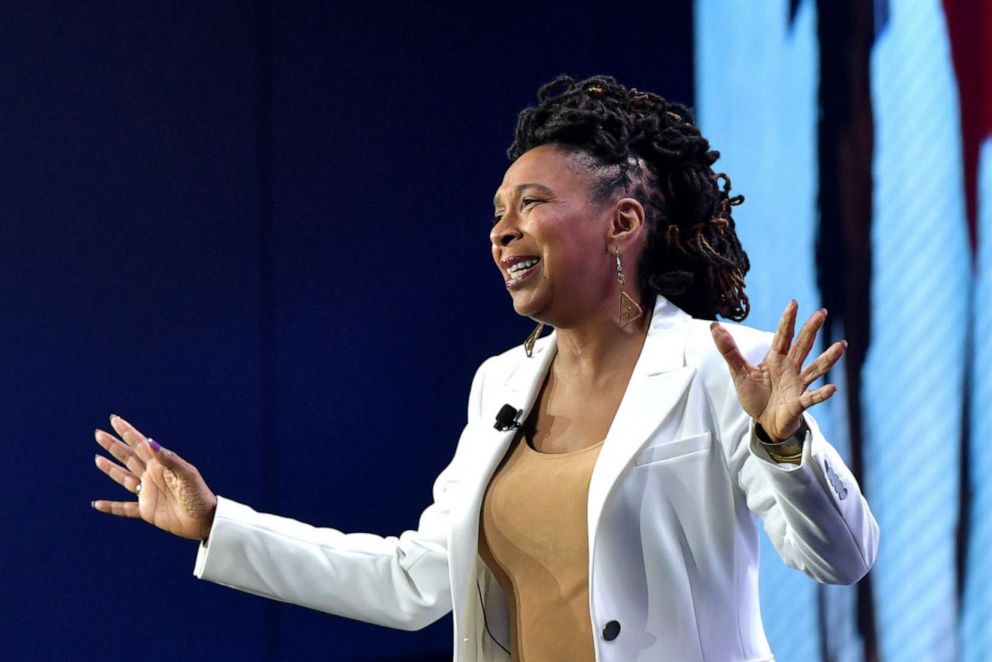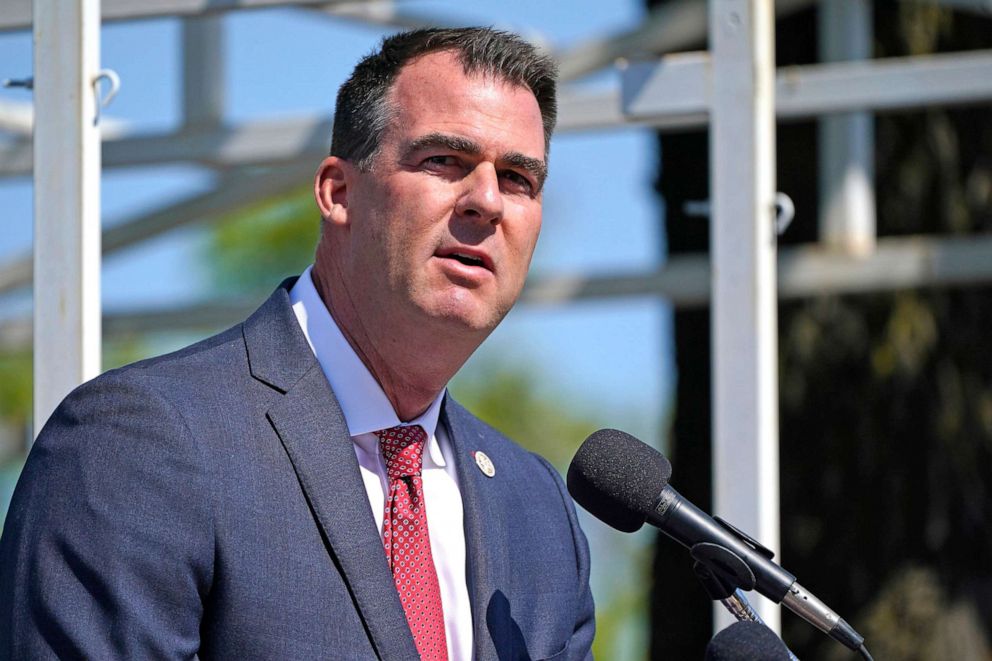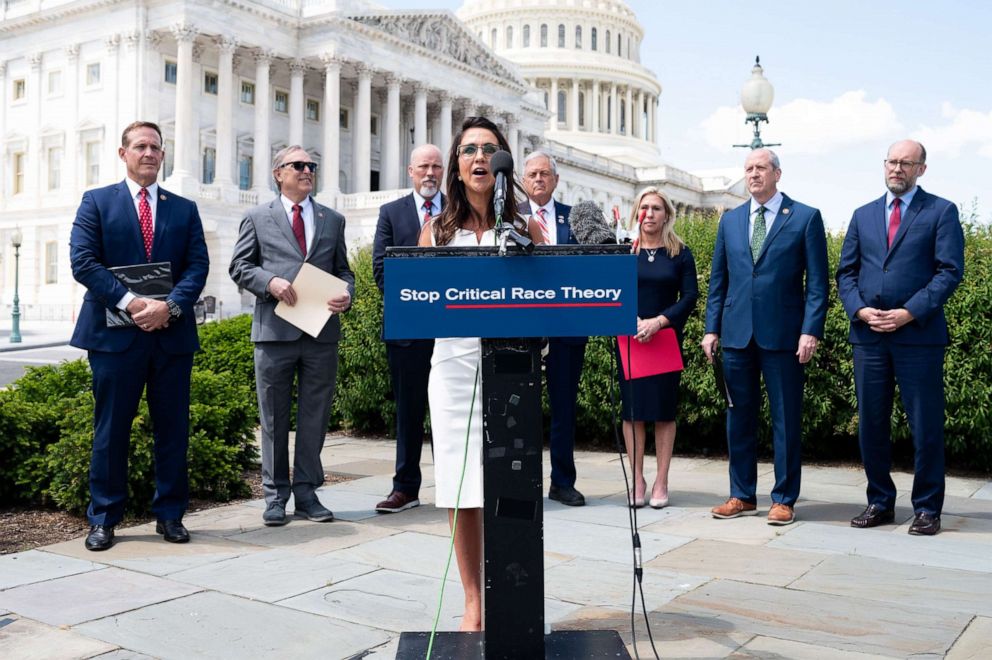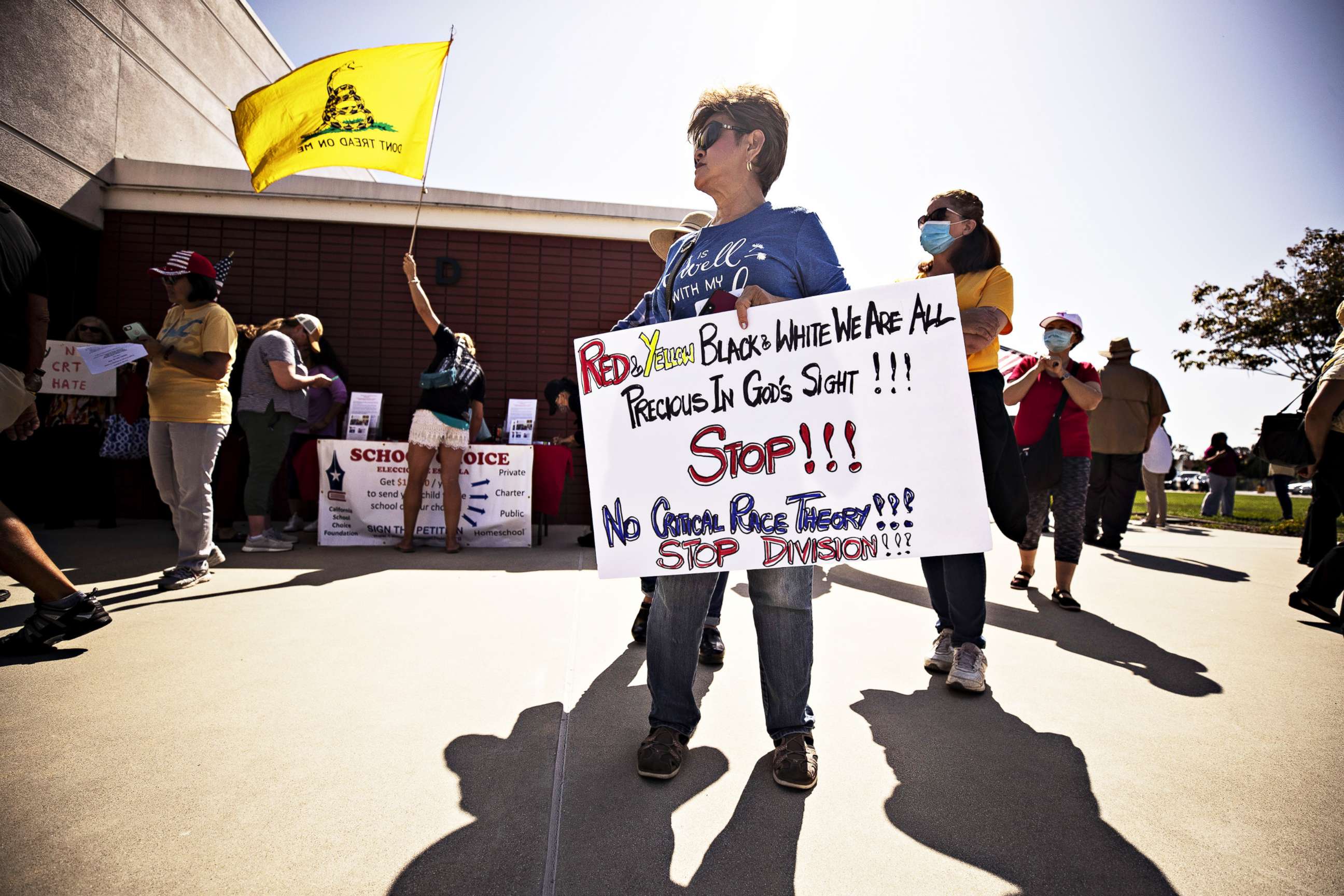Critical race theory in the classroom: Understanding the debate
Some states are placing limitations on racial inequality education in schools.
Critical race theory, an academic concept about systemic racism typically taught in higher education institutions, has become a target of Republican legislators in states across the country.
At least 16 states have laws or policies in place that limit lessons about race and inequality being taught in American K-12 schools.
Many of the bills don't directly mention critical race theory in their text, and instead legislate against lessons that may make students feel "shame," "guilt" based on race or discuss "oppression" and "intersectionality." Critics say the vague language could impact lessons detailing racism and oppression in the U.S.
Still, lawmakers pushing these bills forward have invoked the educational movement of critical race theory while advocating for this legislation.
Critical race theory, according to founding critical race theorist Kimberlé Crenshaw, is a discipline that seeks to understand how racism has shaped U.S. laws and how those laws have continued to impact the lives of non-white people.
Critics of the theory claim it shames and guilts children based on their race.
"We should not teach that one race is superior to another," said Texas Republican state House Rep. Steve Toth in an interview with ABC News. "We should not teach that one race is inferior to another."

"The law has played a substantially significant role in establishing what race and racism actually are in American society," Crenshaw told ABC News, pointing to the effect laws have had on Black people specifically.
She continued, "We can never forget that slavery was perfectly legal and constitutionally protected. ... Law has played a mixed role in our history. It has enslaved us. It has justified disenfranchising us. It has justified segregating us. It has justified marginalizing us, criminalizing us."
Crenshaw, who is also a Columbia Law School professor, believes the concept of critical race theory is being misrepresented and used as a political tool.
What is critical race theory?
Academic experts, including Crenshaw, say critical race theory is not what is being taught in K-12 education curriculums.
Critical race theory is a study in academia based on the concepts of systemic and institutional racism. Systemic racism refers to how the government has discriminated against Black, Indigenous and other people of color through unjust policies concerning housing, employment, criminal justice, education and more.
From the conception of slavery in America, to the Jim Crow laws that segregated Black people, to the disproportionate criminalization and brutality against Black Americans, Crenshaw said racism and white supremacy have persevered in the U.S. through law.
Even if some discriminatory laws or policies are no longer in effect, she said, they can still impact families for generations.
"From who lives where to the disproportionate consequences of COVID," Crenshaw said, "these are all current ways in which racial disparities are produced."
The study also analyzes benefits white people have in society, which is sometimes referred to as "white privilege." This refers to the concept that white people continue to be protected from the effects of systemic race-based discrimination because of their skin color.
"In every aspect of our lives, we encounter race," Jane Bolgatz, the associate dean for academic affairs at Fordham University Graduate School of Education, told ABC News. "If we aren't talking about race, we aren't noticing the ways in which society pushes white people forward. And so then we're not noticing the fact that these winds are not only pushing them forward but pushing people of color backward."
Some educators across the U.S. expanded their curriculums on racial inequality in response to the turbulent year of protests against police brutality and disproportionate police violence against Black people.
Crenshaw said she believes the latest legislation on education and the teachings about structural racism are not about the curriculum itself, but about the power that education about racism can have on fixing systems of oppression.
"Not talking about [racial disparities] is simply a way of just naturalizing them, normalizing them and allowing these patterns to continue over and over again," Crenshaw said. "There has been a deep insecurity that politicians have weaponized from the beginning of our republic to convince those who are willing to listen that more racial justice means less for them."
Some curriculums now include more racialized historical events, such as the Tulsa race riot and the Rodney King case and the subsequent Los Angeles riots, that highlight the plight of Black and brown Americans in the United States.
But those educators say their efforts are in danger due to these potential new restrictions on education.
What are the critics saying?
Republican-majority state legislatures across the country have introduced or implemented restrictions on teaching about racial inequality in schools. These bills -- in Florida, Tennessee, Texas, Idaho, North Carolina, Oklahoma and Louisiana -- include almost the exact same language.
Many of the bills say include language that would ban teachers from teaching that "one race or sex is inherently superior to another race or sex," that "an individual, by virtue of the individual's race or sex, is inherently privileged, racist, sexist or oppressive, whether consciously or subconsciously," that "a meritocracy is inherently racist or sexist, or designed by a particular race or sex to oppress members of another race or sex" and that "this state or the United States is fundamentally or irredeemably racist or sexist."

Critical race theorists, analysts and educators say the discipline does not attack individual students for their privileges, but rather, it makes them aware of how different systems in the U.S. discriminate against others.
"If a kid is being taught that they're an oppressor, that means that the person who's doing the teaching is not explaining the difference between people and systems," Bolgatz said. "Racism is a system. ... People are prejudiced, and we can work on our own individual prejudice, but we have to also work on the systems that discriminate writ large."
Still, legislators are crusading against critical race theory -- as well as other programs that teach about oppression.
In his bid for the 2024 presidential election, former President Donald Trump promised to "eliminate federal funding for any school that pushes critical race theory or left-wing gender ideology."
Florida Gov. Ron DeSantis has also led the charge in his state against critical race theory -- as well as diversity, equity and inclusion programs.
The Stop WOKE Act, which took effect in July 2022, restricts lessons and training on race and diversity in schools and in the workplace, particularly anything that discusses privilege or oppression based on race, or whether someone “bears personal responsibility for and must feel guilt, anguish, or other forms of psychological distress” due to U.S. racial history.
The law is temporarily blocked from impacting colleges and universities, and is still being battled out in the courts.
This legislation and other policy changes have lead to the rejection of an Advanced Placement African American studies course in the state, local reports of the removal and strict vetting of race-related books in school libraries, and an effort to remove funding toward race-related or diversity, equity and inclusion-related programs in colleges and states.
Rep. Toth, who introduced a similar bill in his own state, told ABC News that he encourages race to be taught in classrooms "from a diverse and contending perspective without showing deference to one side or the other."
However, he said he believes the term "white privilege" blames children for actions of racism in the past and says critical race theorists believe if someone can't acknowledge the impact of white supremacy or white privilege, then they are racist.
His bill does not specifically name critical race theory in the text of the language, but Toth has been a staunch critic of the theory's teachings and has cited the theory as problematic. He did not answer what his definition of critical race theory is.
Oklahoma Gov. Kevin Stitt HB 1775 shared similar sentiments with Toth about his state's own bill, which he recently signed into law. In a statement sent to ABC News, Stitt said that some forms of the curriculum "define and divide young Oklahomans" based on their race or sex. The Oklahoma bill has almost identical language to the Texas bill.
"We can and should teach this history without labeling a young child as an oppressor or requiring he or she feel guilt or shame based on their race or sex," Stitt said. "I refuse to tolerate otherwise during a time when we are already so polarized."

Educators weigh in on importance of teaching about race
Joy Hofmeister, Oklahoma's state superintendent of public instruction, has been outspoken about her concerns on the bill in her own state, especially concerning the history of the Tulsa race riot in her own state.
Hofmeister, along with the members of the Oklahoma City Public School Board of Education, have denounced the legislation.
"Students deserve an honest understanding of our history and its episodes of both greatness and shame if we hope to learn from our past," Hofmeister told ABC News in a statement. "I am confident our educators will teach the Oklahoma Academic Standards, which finally and explicitly includes the hateful tragedy that was the 1921 [Tulsa] race massacre."
Bolgatz believes that U.S. history is racialized "whether we are acknowledging or not" and said children need to talk about and understand racism in the history of the U.S. to end the current systems of racism.
The American Psychological Association reports that infants and toddlers are often aware of race and can display racist beliefs from their young age. Although most adults believe talk about race and discrimination should be stalled until the age of 5, according to the study, psychologists recommend helping young children navigate these ideas earlier than expected.

Bolgatz wrote the book, "Talking Race in the Classroom," which addresses education on racial inequality from a young age. Talking about race and teaching about the way it affects people differently can help children and teens navigate and understand these systems of oppression, she said.
Bolgatz said white children often don't experience racism or acknowledge race in their daily lives, whereas children of color are faced with the reality of their skin color every day. They said that when children are socialized without being exposed to historical understandings of race and discrimination, harmful ideas can be easily entrenched in their young minds.
"We think that the law is neutral, we think that in schools are neutral, but they're just not," Bolgatz said. "Now we have evidence for why the criminal justice system isn't neutral and how the educational system isn't neutral and how the medical systems aren't neutral."
"Why should we teach children? It's so that the children who are going to grow up and be doctors and teachers and police officers and judges have some understanding about what it means to be equitable," Bolgatz said.